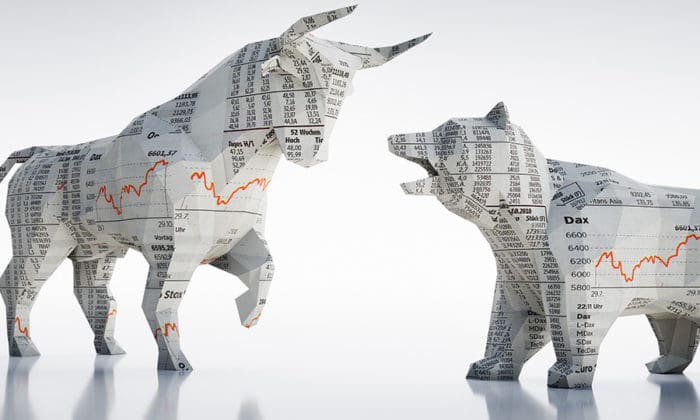I was lucky enough to take a vacation last week. We didn’t go far – we rented a house on the Connecticut shoreline with another couple – but it gave me a chance to take a much-needed break from constantly monitoring markets. That said, I couldn’t completely stay away from financial news. For one thing, our friends were under extreme stress from their jobs in the logistics industry. I was curious to see whether the supply bottlenecks that were causing them trouble were affecting markets. And quite frankly, after all these years it is essentially impossible for me to avoid taking a peek at major indices as long as I have access to news.
Keeping the TV and radio off during the day forced me to approach markets differently than I do normally. On a typical day, I’m sitting at desk[i] surrounded by streaming prices and news. For decades, it has been my responsibility to process news items and price movements into tradeable signals. That is a really hard habit to break. On vacation I was exposed to infrequent news alerts on my phone and checked the markets only periodically. What surprised me most was that there appeared to be no discernible cause and effect between major market indices and economic news.
On Thursday, the Producer Price Index (PPI) came in well above expectations, which should be concerning to investors (and a Federal Reserve) that is supposed to be concerned about inflation. The S&P 500 (SPX) was up 0.30% that day, its best day that week. On Friday, the University of Michigan Consumer Sentiment numbers were well below expectations, affected by both weaker current conditions and expectations. That should be quite concerning to markets that depend upon a resurgent consumer. Nope. SPX was up 0.16%. SPX was up between 0.09% and 0.30% each day last week.
Against a backdrop of geopolitical concerns and other concerns, I could only conclude that exogenous factors were of little concern to investors. While markets continue to display a remarkable ability to climb a wall of worry, the more important question is what gives them that ability. I will assert that investors have become nihilists.
Investors have become so acclimated to steadily rising markets that little matters except that they keep advancing regardless of the reasons why. To be fair, this is not totally irrational. With the Federal Reserve continuing to inject records amounts of money into the economy and Congress debating an infrastructure package that could offer another fiscal boost, the investment backdrop remains solid. Furthermore, we have a multitude of new investors who have never been exposed to markets that weren’t heavily supported by governmental factors. We can’t blame them for continually putting new money into the market and using even the slightest dips as buying opportunities. Money flows can trump news flows for surprisingly long periods of time.
You might be tempted to note that we had a decent selloff yesterday. That is normal. It is more worrisome if markets never sell off. It is far more unusual that we have not experienced a 5% sell off in months, let alone a real correction. This is the type of environment that allows investors to think that markets are impervious. And in the short term, they might be.
Yet I think back to the time when I first discussed market nihilism in this space. On February 14, 2020, I published “Confessions of a Market Nihilist”. At the time I was baffled by the market’s ignorance of the worsening Covid situation throughout the world. Just a few days later, on the 19th, the SPX peaked at a new high. About a month later it had dropped by about 1/3. While I don’t see anything quite so troubling on the horizon, the prospects of another round of Covid, a debt ceiling battle, and a Fed that may be pulling back on its purchases are all causes for concern. On the surface, none should be sufficient to trip up an exuberant market. But exuberant markets are often the riskiest. While nihilism rules, when nothing seems to matter, the strangest things eventually do matter. And that’s the risk.
—
[i] To be accurate, sometimes I’m standing, sometimes I’m pedaling an under-desk treadmill
Disclosure: Interactive Brokers
The analysis in this material is provided for information only and is not and should not be construed as an offer to sell or the solicitation of an offer to buy any security. To the extent that this material discusses general market activity, industry or sector trends or other broad-based economic or political conditions, it should not be construed as research or investment advice. To the extent that it includes references to specific securities, commodities, currencies, or other instruments, those references do not constitute a recommendation by IBKR to buy, sell or hold such investments. This material does not and is not intended to take into account the particular financial conditions, investment objectives or requirements of individual customers. Before acting on this material, you should consider whether it is suitable for your particular circumstances and, as necessary, seek professional advice.
The views and opinions expressed herein are those of the author and do not necessarily reflect the views of Interactive Brokers, its affiliates, or its employees.





















Join The Conversation
For specific platform feedback and suggestions, please submit it directly to our team using these instructions.
If you have an account-specific question or concern, please reach out to Client Services.
We encourage you to look through our FAQs before posting. Your question may already be covered!